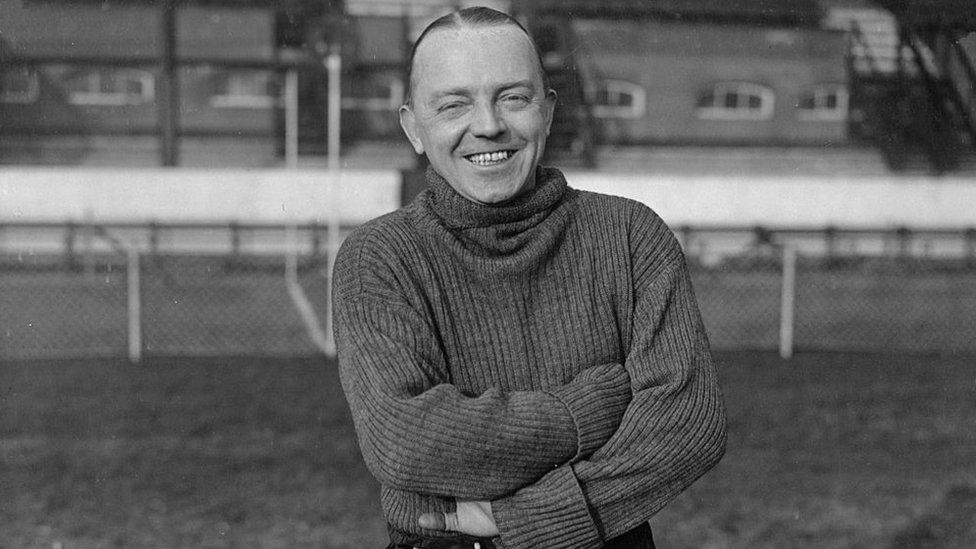Great Yarmouth Town's 'amazing' place in TV history
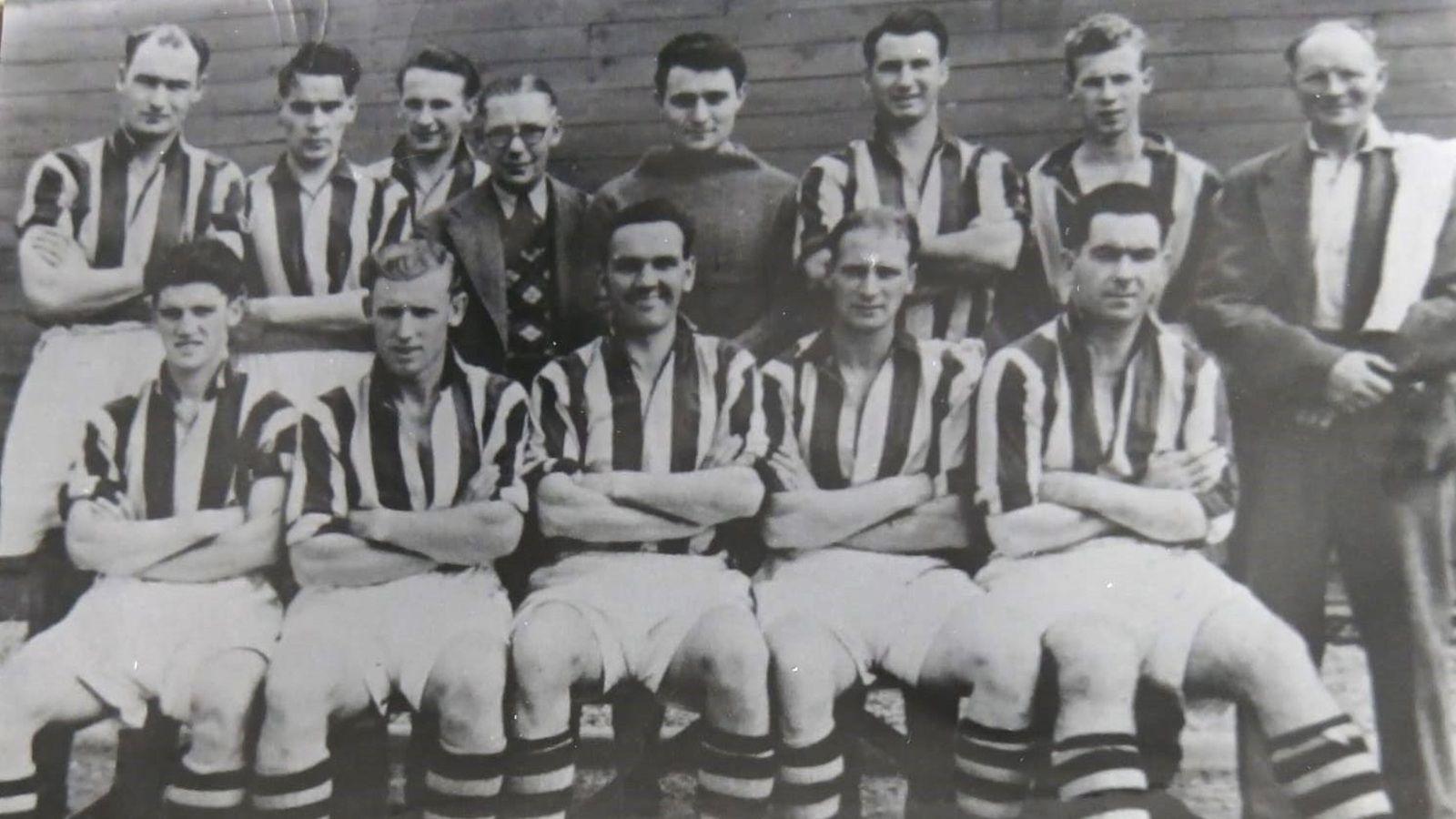
Great Yarmouth Town FC's 1949-50 first team, almost all of whom played in the historic November 1950 FA Cup match
- Published
A non-league football chairman has said it was "amazing" to learn his club was the first from its county to appear in a live television game.
It is 75 years since Great Yarmouth Town's FA Cup qualifying match away at Tooting & Mitcham United was broadcast by the BBC on 11 November 1950.
This made it the first Norfolk club to be televised live, decades before much bigger neighbours Norwich City or any other team from the area.
Current Yarmouth chairman Martyn Sinclair told a feature for the Secret Norfolk series on BBC Sounds it was "great for the club and one over on Norwich".
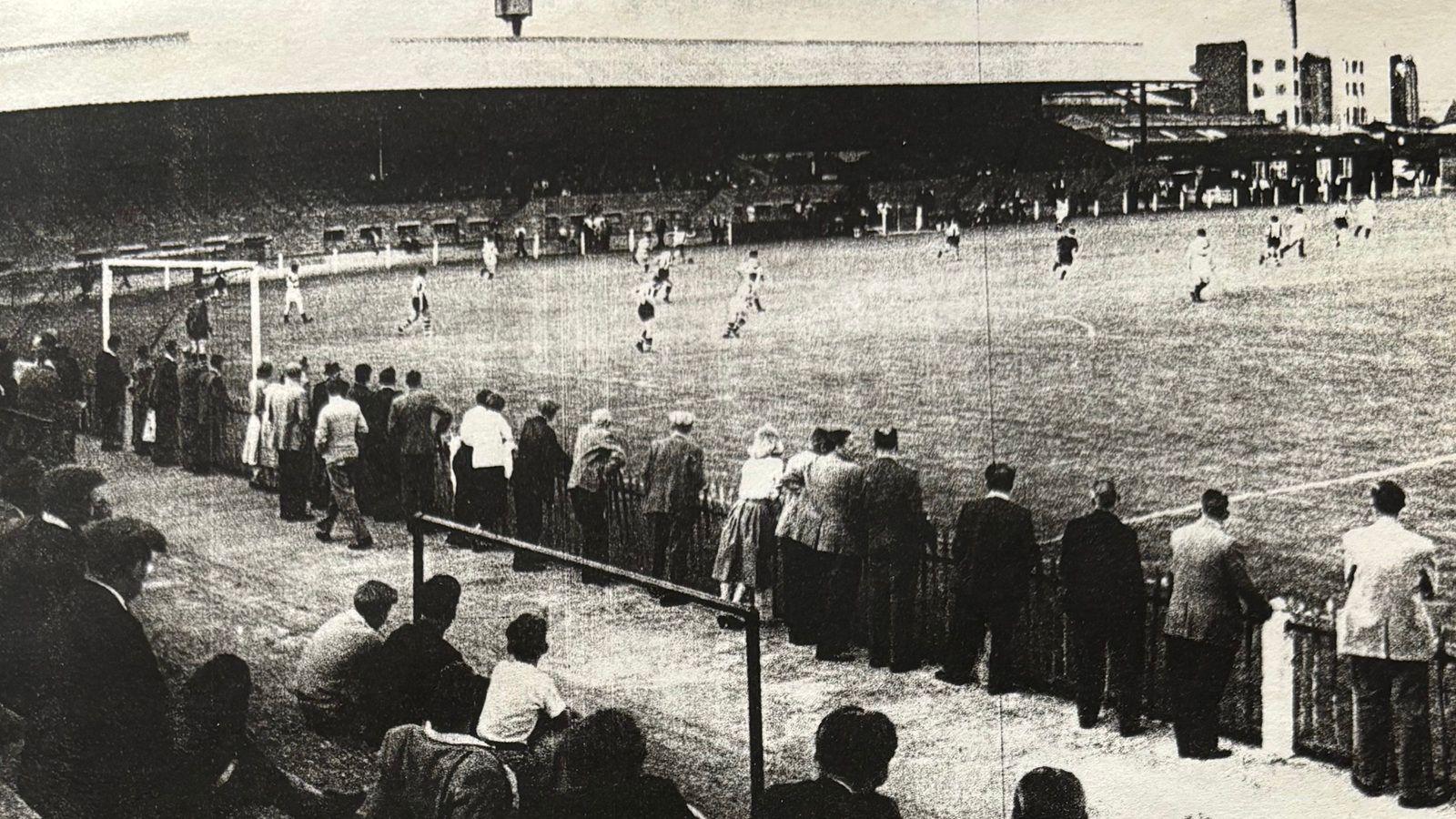
Tooting & Mitcham United's Sandy Lane ground, where the FA Cup fourth qualifying round match was played in November 1950 (Seen here later in the 1950s)
'Forbidden'
In the 1940s and 50s, the early BBC Television Service regularly showed football matches on Saturday afternoons – before a ban on showing games at that time was later introduced.
But the Football League was worried televised games would stop people attending matches in person and forbade its member clubs to take part in any live coverage.
So apart from the FA Cup final and occasional international matches, the BBC could only show games involving lower level non-league teams.
It had broadcast from Tooting & Mitcham's Sandy Lane ground in South London before and visitors Great Yarmouth were, at the time, a strong side with some paid professional players.
This made the FA Cup fourth qualifying round match between the two an attractive fixture.
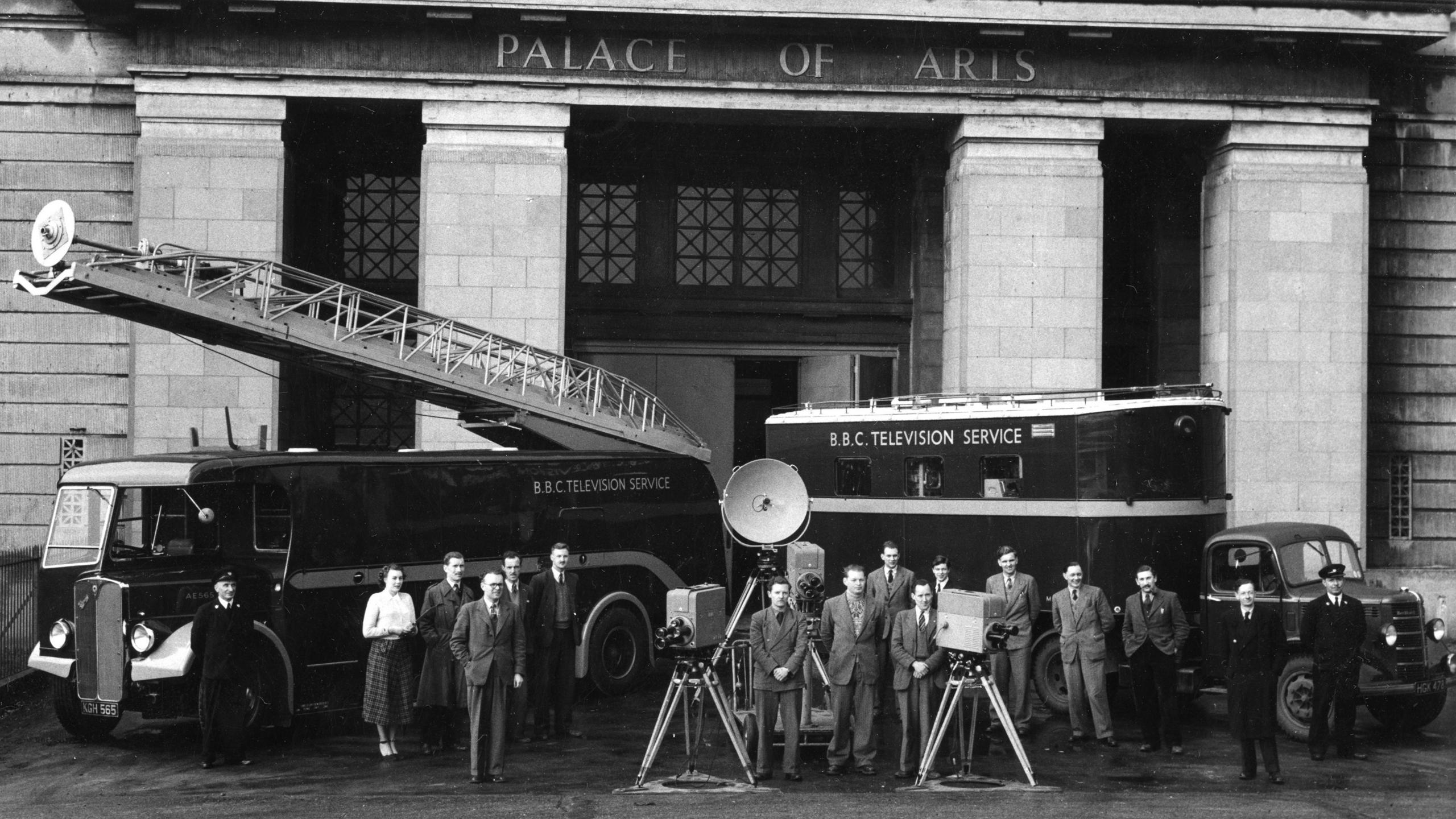
A BBC outside broadcast crew at its Wembley headquarters in 1951
Historian David Tubby has written a book about the history of Great Yarmouth Town FC and explained how the club was "going through a few financial troubles" in 1950.
"They'd reduced their professionals from nine the previous season to seven, to save money. So they weren't an affluent club," he said.
Tooting & Mitcham were paid 25 guineas (£26.25) by the BBC for the coverage, and even two people who lived nearby were paid for the use of their phone lines so the BBC could communicate back to base off-air.
But Yarmouth got nothing from the BBC.
However, it did make £336 from its share of the gate receipts from a crowd of 7,000 - worth around £10,000 today.
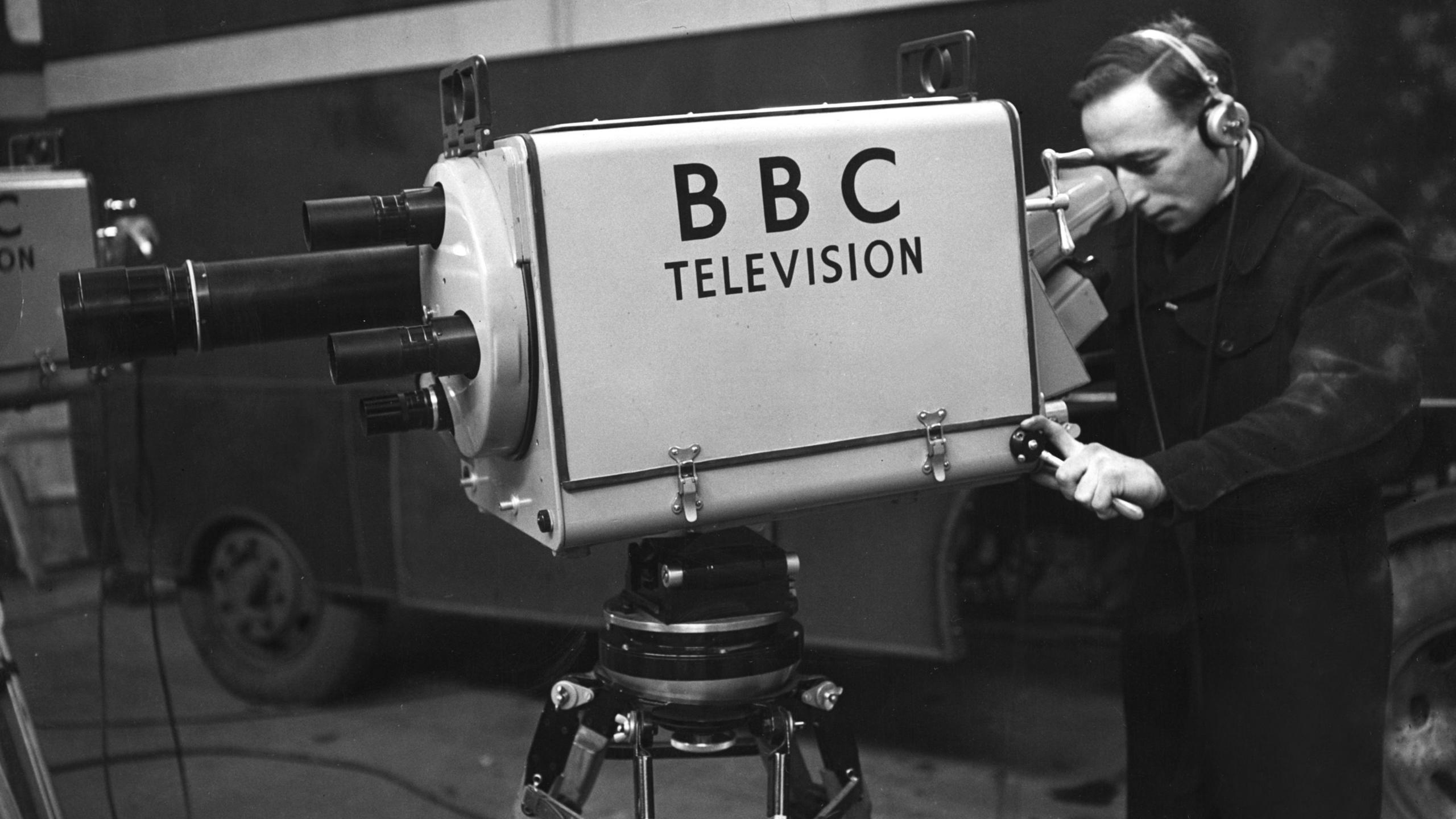
A BBC outside broadcast camera pictured in 1949 - the type which would have been used to cover the November 1950 game
'White ball'
The TV coverage was recognised as significant at the time, with local newspaper the Yarmouth Mercury noting it would make the team "the first club in the Eastern Counties to appear on the television screen."
Yarmouth lost 5-3 after two late goals. Another local paper, the Eastern Daily Press, wondered whether the high scoring could have been down to the then-unusual use of a white ball – which showed up better on black and white television than the more common orangey-brown one.
"One of the onlookers suggested that the white ball required for television made things difficult for the goalkeepers. It would be interesting to know whether scoring is usually high in televised matches."
In common with almost all live TV broadcasts at the time, the match was not recorded, so no footage of the action exists today.
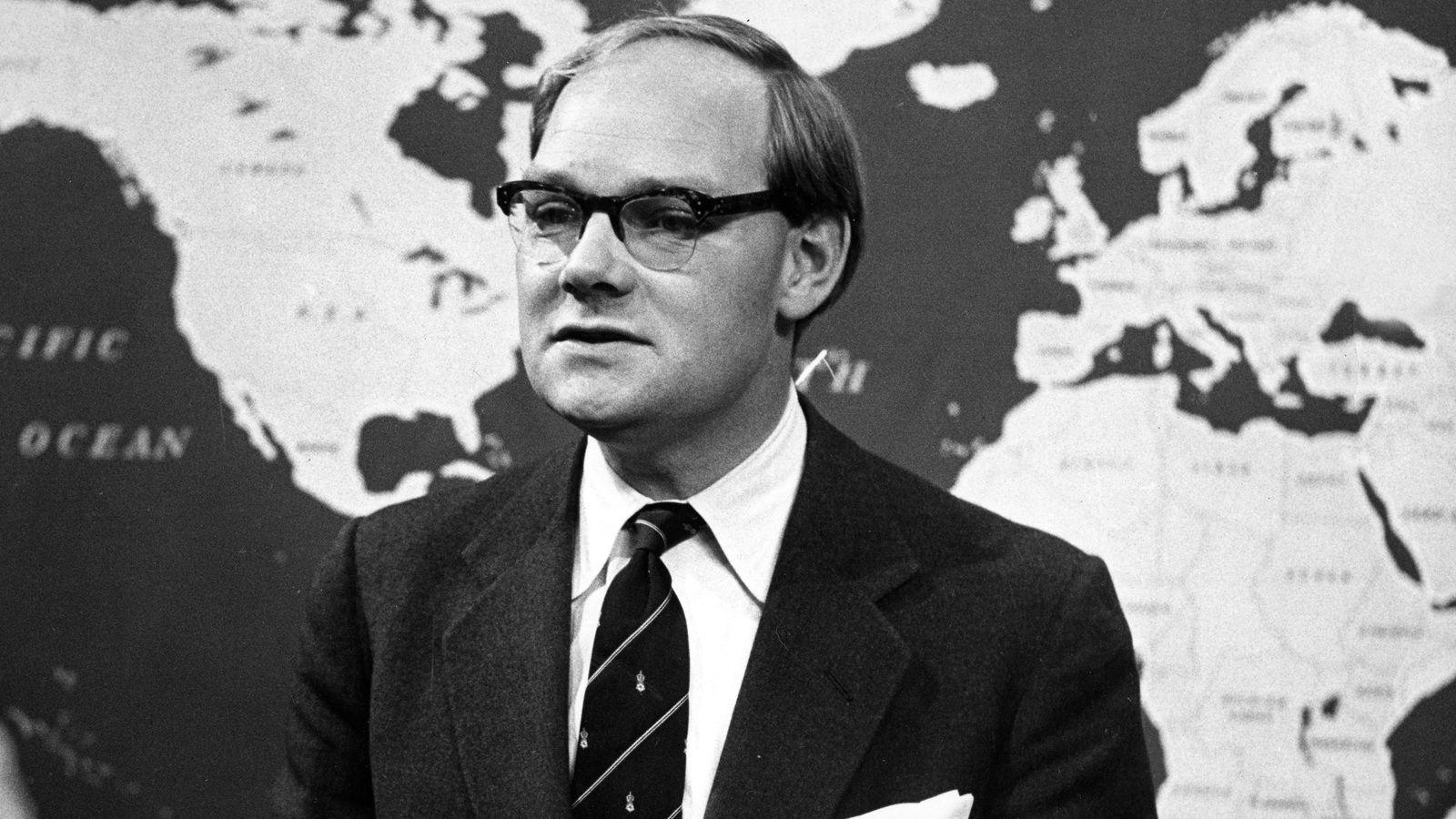
Cliff Michelmore, later to become a household name when he presented the Tonight programme on BBC Television from 1957 to 1965, was one of the commentators on the match
Household name
The BBC Written Archives Centre at Caversham in Berkshire holds some paperwork related to the game. This reveals that the commentators were Jimmy Jewell and Cliff Michelmore.
Michelmore went on to become a household name later in the 1950s as presenter of the Tonight programme. Jewell was the main BBC TV football commentator at the time, and had previously been both a top-level referee and the manager of Norwich City.
The broadcast was produced and directed by Aubrey Singer, who later went on to be Managing Director of BBC Television.
The coverage started only four minutes before the 14:30 GMT kick-off and finished almost immediately after the final whistle. There was no half-time analysis - instead records were played and a caption shown.
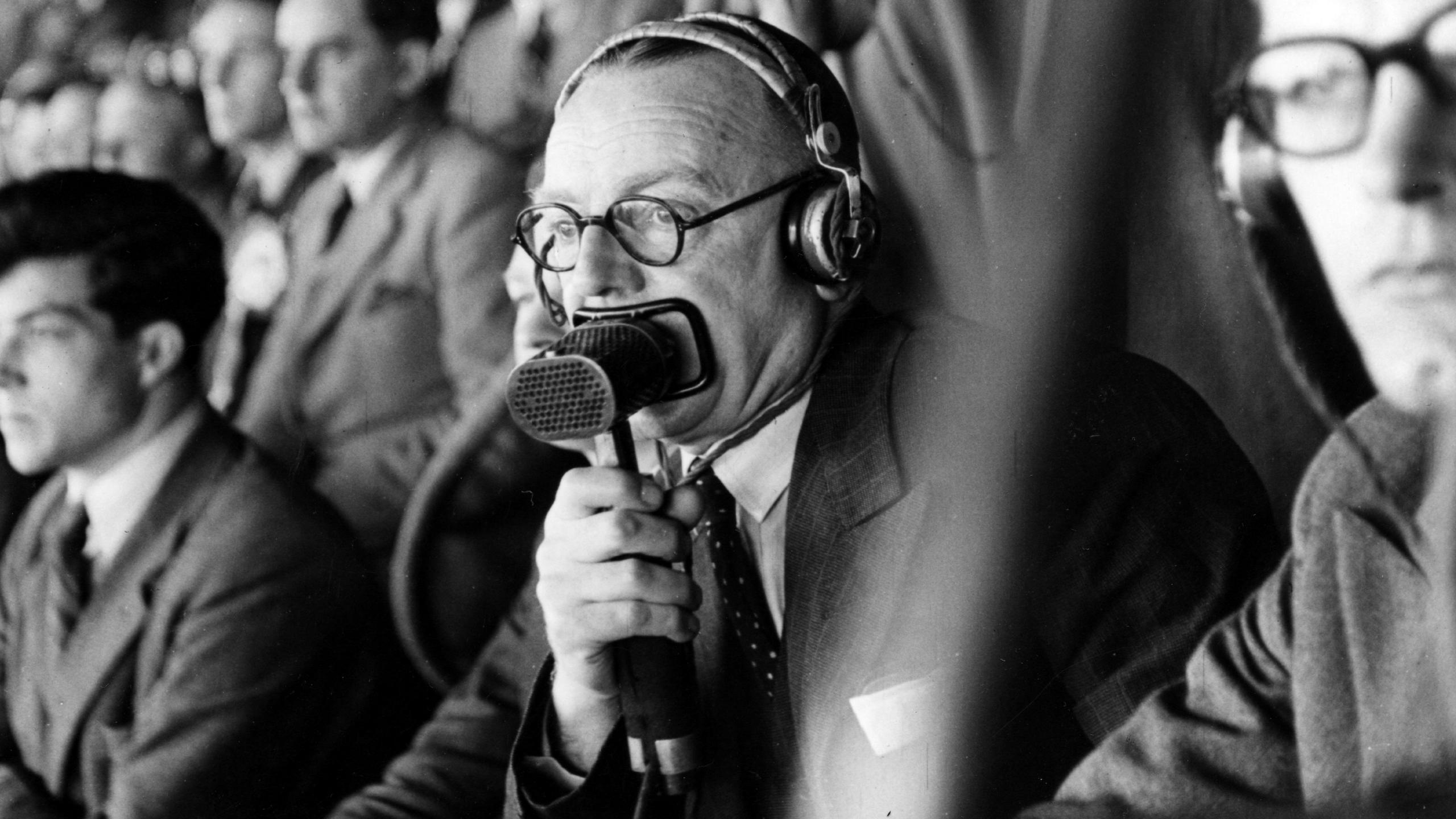
The lead commentator on the game was former Norwich City manager Jimmy Jewell, seen here commentating on the 1948 FA Cup final
After the match, at 16.12 BBC Television closed down again until coverage of the Royal British Legion Festival of Remembrance in the evening.
Few people in Norfolk would have seen the broadcast. Nationally there were around 500,000 TV licence holders in 1950. However, the BBC had only two television transmitters at the time.
One was in London and the other in the Midlands, so reception in East Anglia would have been difficult.
The BBC's audience research estimated that approximately 340,000 people within range did watch. As there were no other channels, every single person in the country who was watching TV that afternoon was tuned in.
Modern day Great Yarmouth Town chairman Martyn Sinclair said it was "a lovely little bit of our club's history."
Tubby, meanwhile, said he was "surprised that it was a first," as he would have expected Norwich City to have been the first Norfolk team on television.
"But I don't think Norwich's first televised match, a full game, was until about 1980, which amazes me."
Great Yarmouth Town's place in TV football history
In 1950, Great Yarmouth became the first Norfolk football team to appear live on TV.
Related topics
- Published27 July 2024
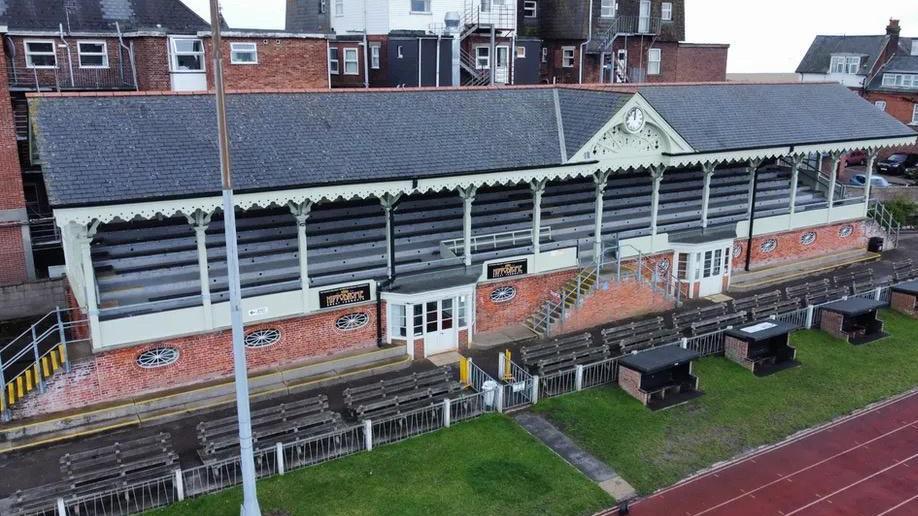
- Published27 July 2023
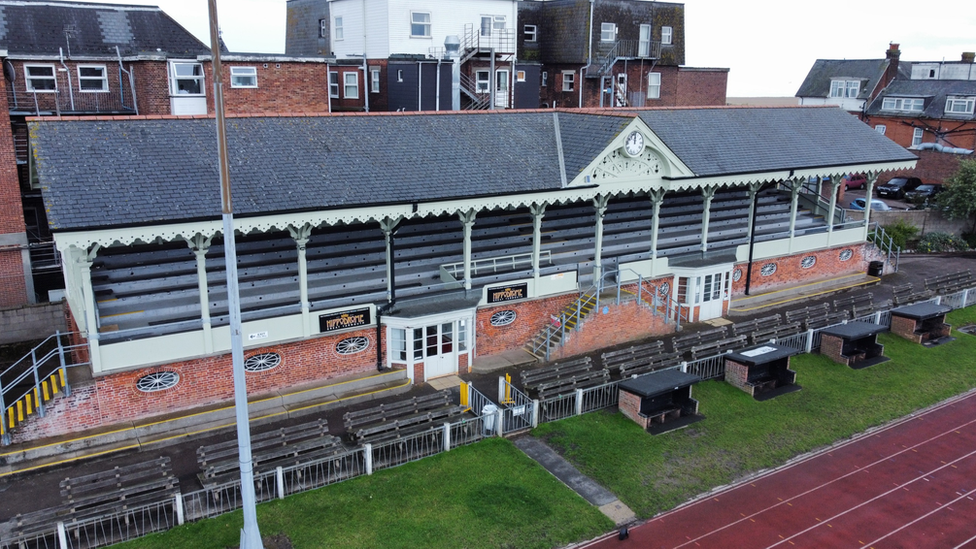
- Published24 August 2019
